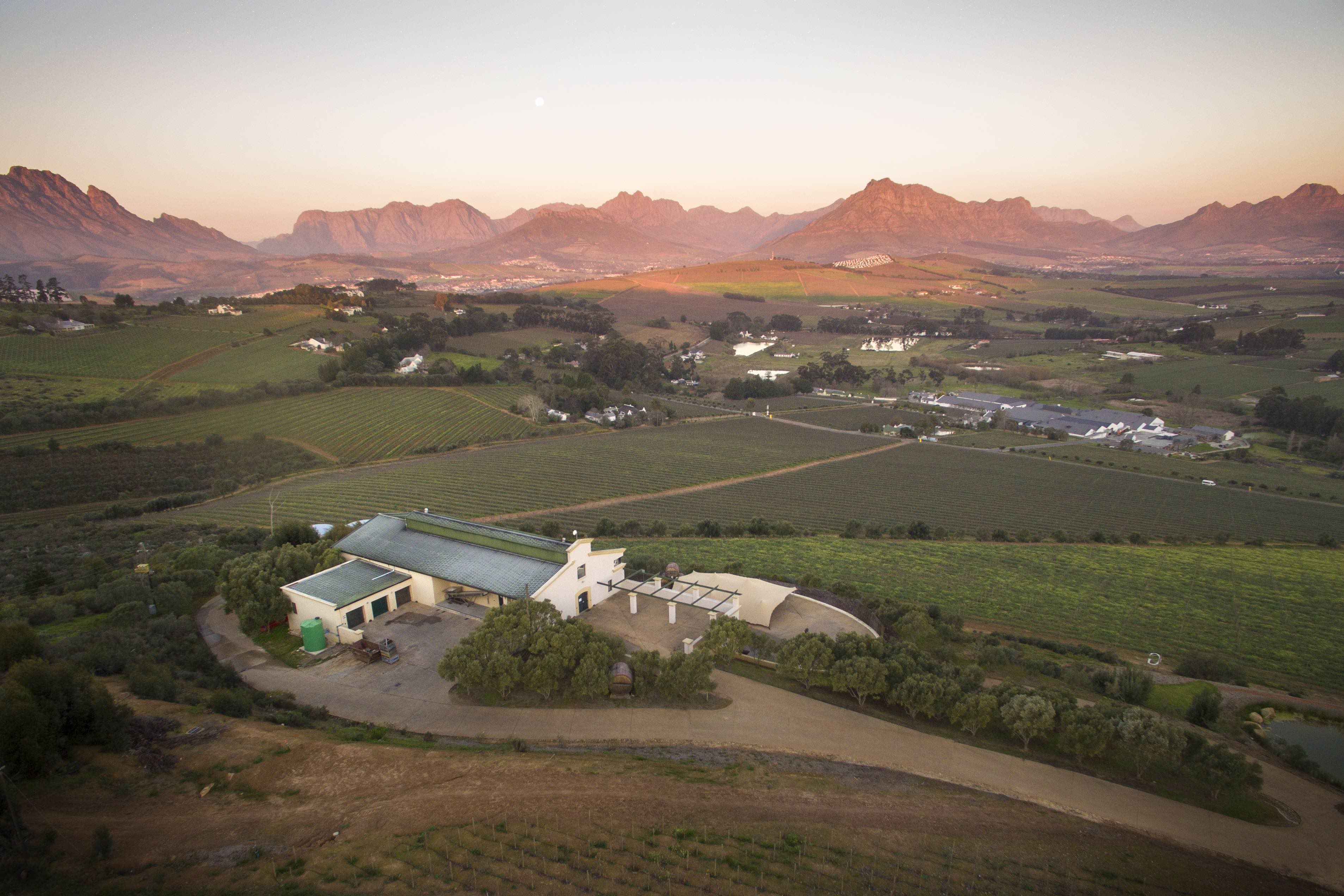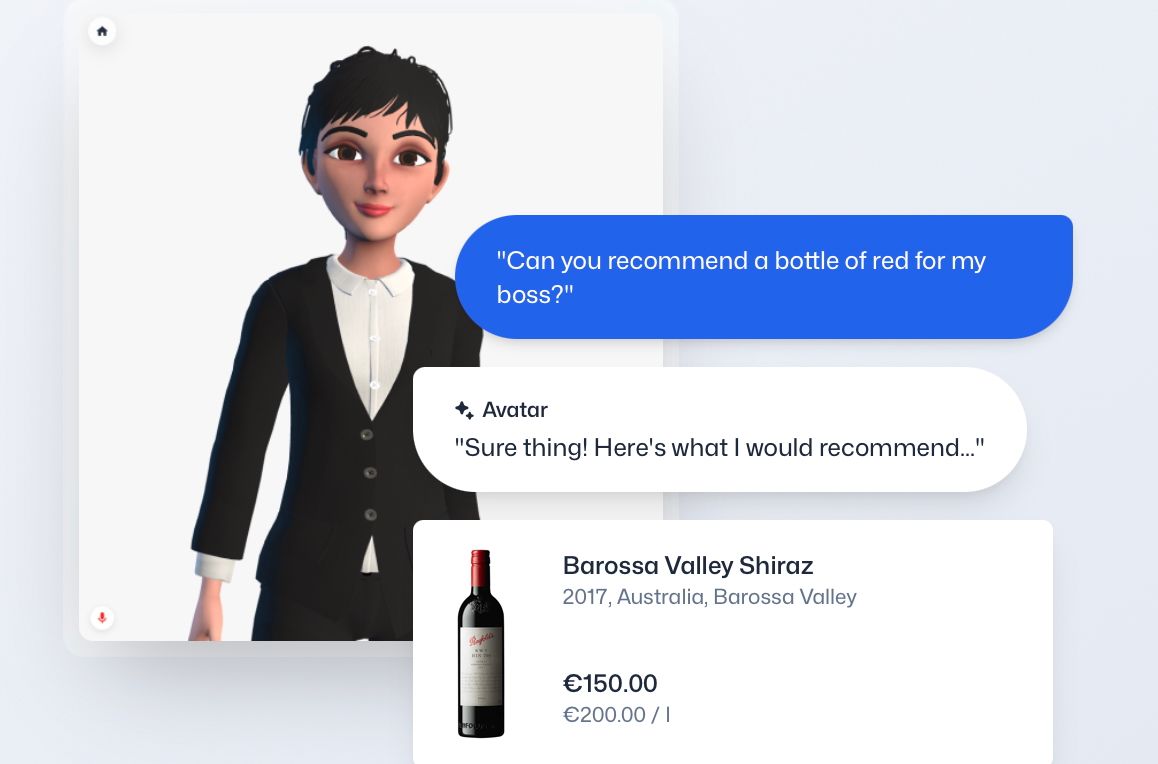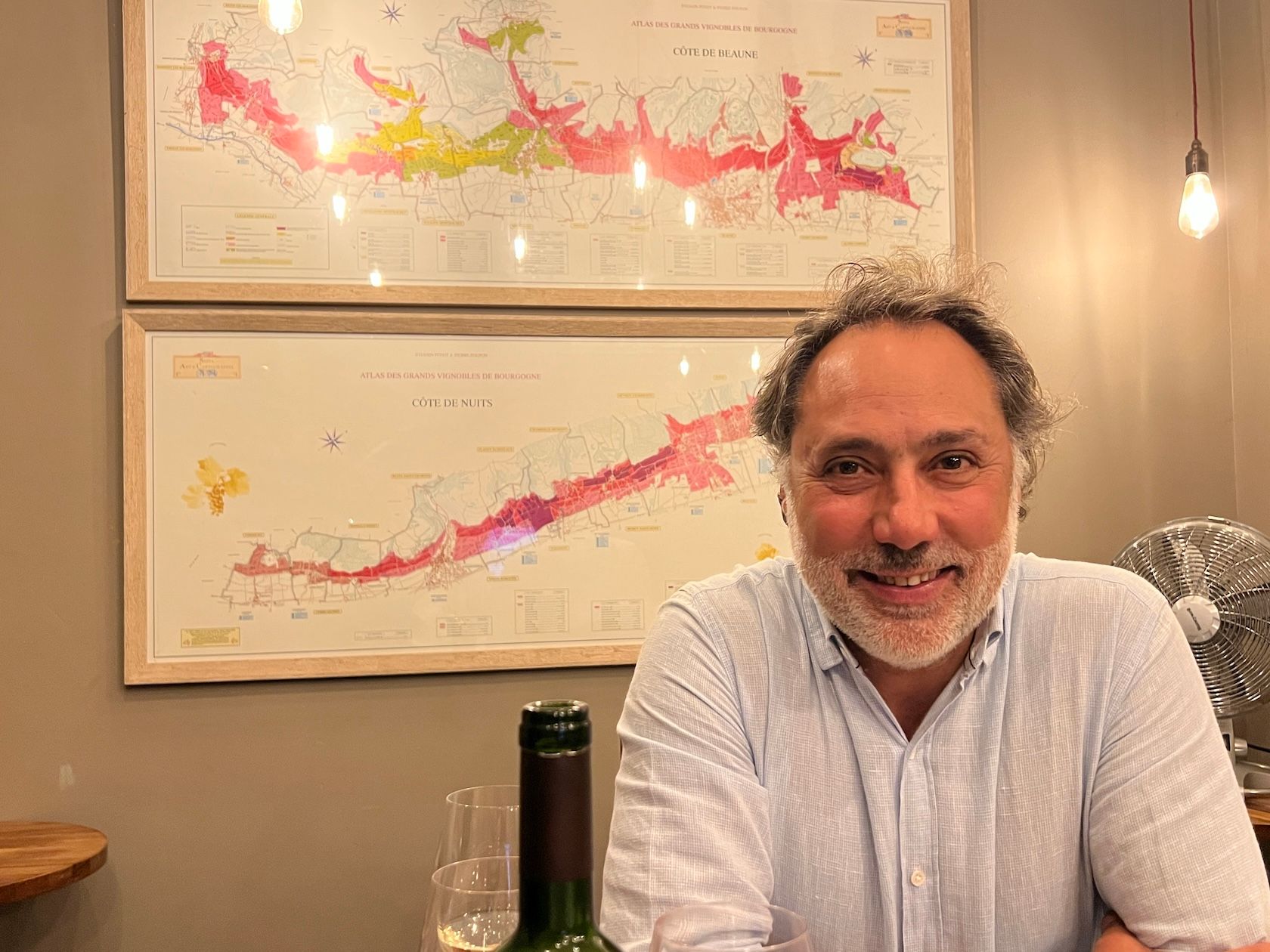Bernard Fontannaz and Origin Wines are well known for looking to shake up the off-trade wine aisle with new branded wine ideas. He now has his sights set on offering the premium on-trade a new range of wines that offer both quality, but a commercial reason to buy from initially South Africa and Argentina.
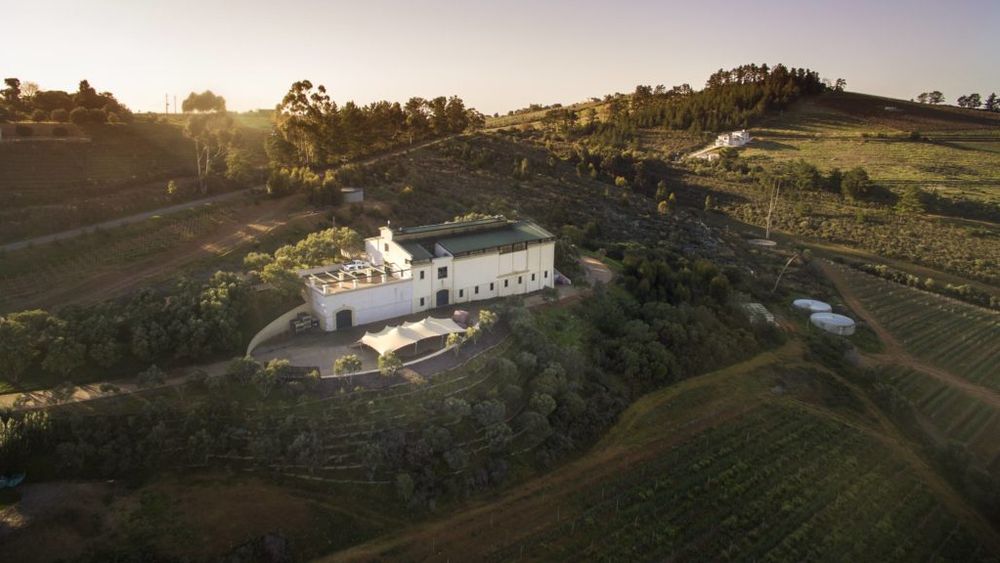
Le Grand Domaine is the key hub for Origin Vineyards new South African premium wines for the on-trade
You don’t win any prizes for standing still in the globally competitive world of wine production and buying. What may have been your route to success, seemingly endless profits and growth in the past is far from a guarantee they will be in the future. Thinks are moving now so fast in how end customers are buying wine for different sales channels – particularly the diverse world of online and digital – that you have to be second guessing the market even more than ever.
Following Gallo
Look at E&J Gallo. One of global industry’s biggest and most important and influential wine companies. It has increasingly recognised over the last 10 years that it cannot continue to grow like it has in the past relying just on supermarket-focused, mass market wine brands.
Gallo realised if it was to continue to grow and secure its long term future then it had to premiumise. Raise its game and take its battle higher up the wine ladder and start playing in the premium and ultra premium sectors of the market. Where margins are higher and there are so many growth opportunities.
It’s why we have seen Gallo be prepared to invest $1 billion on fine wine deal alone in the last five years with more, no doubt, in the pipeline. Deals that have seen it acquire a number of prestigious wine names and producers, but most of all take control of their land, their vineyard assets in prime locations that, in themselves, will provide all the protection it needs from the slings and arrows of global business.
Seventy per cent of Gallo’s revenues now come from brands that did not exist in Gallo 15 years ago – 40% of its business is with brands it did not have 10 years ago.
The key aspect of these deals is how much control it gives Gallo over its supply of grapes. Whilst its biggest brands might only contain 5% to 10% of fruit it owns itself, its premium and fine wines will have at least 50% from its own grapes, rising to 100% for some wines.
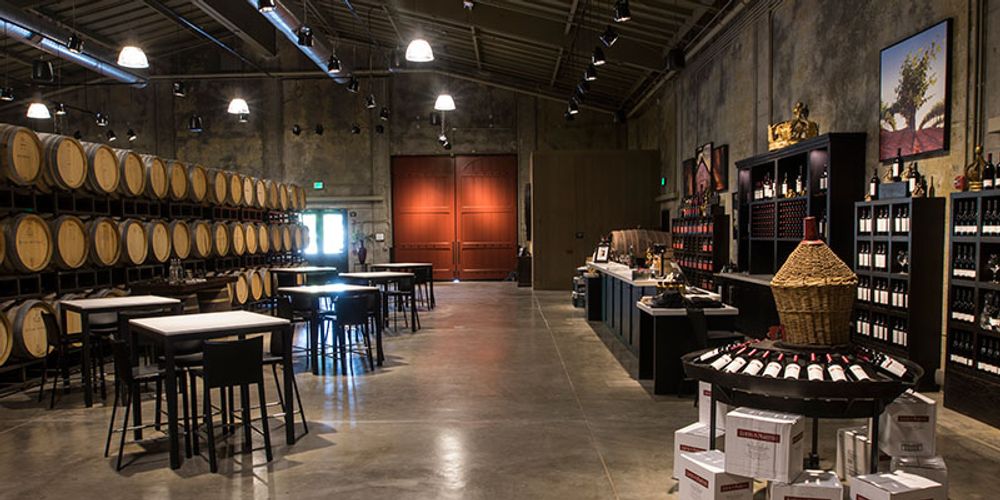
The new Louis Martini winery in Napa is one of a number of new premium estates acquired by Gallo in recent years
All of which means 30% of its global turnover now is in premium wines, whereas it would only have accounted for 1% 20 years ago. That phenomenal turnaround has been seen first in the US where 30% of its sales are now in premium wines, compared to Europe where it sits around 12%, but on course to hit 20% in 2020.
It is a trend we are seeing the world over with more major wine companies, whose past success came from the off-trade, now looking to diversify into premium sectors through specialist wine merchants, wholesalers and the on-trade.
The Origin Vineyards approach
It is also an approach that Bernard Fontannaz, founder of Origin Wines, is also keen to follow. Up to now Origin Wine has been very much focused on building up what has become an impressive and well established business supplying branded, own label and exclusive labels to supermarkets in major markets around the world,including the UK.
Not any more. He has also come round to thinking how important building up its own premium portfolio of wines, made from vines and vineyards he owns, is going to be in the future.
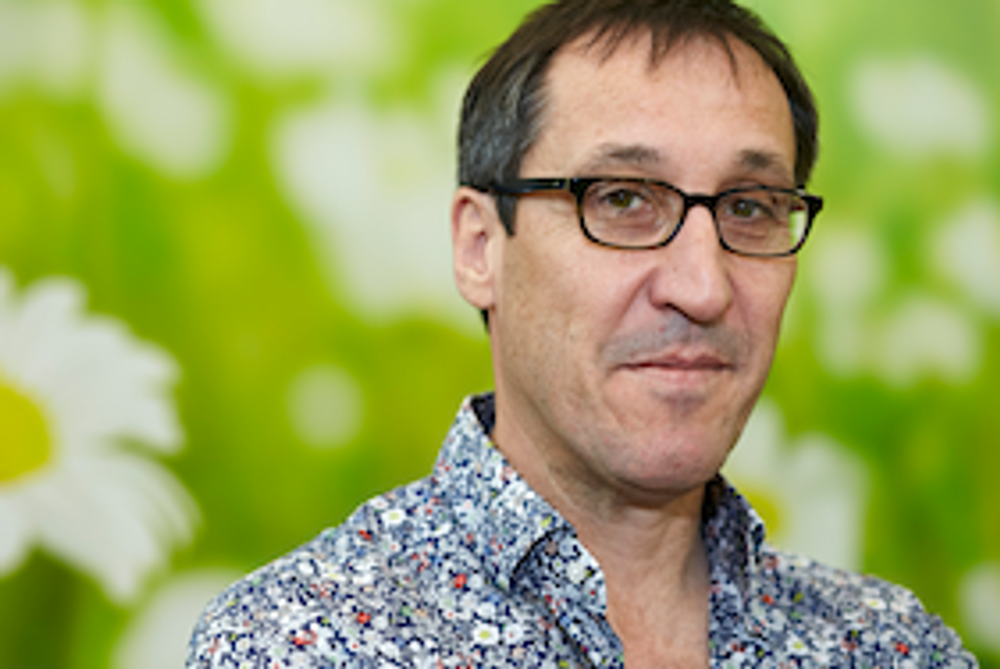
Bernard Fontannaz hopes to live up to the name of Origin Vineyards
Origin has now set up a separate premium wine business, Origin Vineyards, centred around 15 hectares of premium wine land, Le Grand Domaine in Devon Valley, that it bought just outside Stellenbosch in 2016 to develop wines that are true to its company’s heritage to go back to its ‘origins’.
Le Grand Domaine is now producing a range of wines it hopes can help position the new business as very much part of the new premium quality, but great value wine offer from South Africa. It includes: a selection of Bordeaux classics using Cabernet Sauvignon, Merlot, Cabernet Franc, Petit Verdot, Mourvedre and Malbec; an 80,000 bottle Sauvignon Blanc blend, The Pledge, made from sourcing grapes from 10 regions in the western Cape; and a focused Stellenbosh rosé wine that Fontannaz believes can do what Provence producers do, but from South Africa.
Fontannaz said the idea was to create a “chateau concept” and produce iconic Bordeaux blends based on varieties that come from carefully selected clones and rootstock. “The clone selection has been very important,” he stressed. “We have done a lot of micro analysis of the terroir. We are sure we have the found right place.”
He also more than appreciates that this is a long term commitment and will take continuous investment to get right. There are plans to build a restaurant at Le Grand Domaine and to “create an experience” for visitors. Which is where the support of the main Origin Wine off-trade business will be crucial.
Origin Vineyards has also bought the established premium Argentine wine producer, Finca La Anita, as part of what it sees as a growing portfolio of premium wines.
Fontannaz admits that he and his team are having to “learn as they go” but its prepared to move into “unchartered” territory by now focusing on the specialist and on-trade sectors of the market as he knows it is the right thing to do for the long term future of the business. “It’s not a world we know, so we are having to learn fast,” he says.
The key, he adds, will be to work with the right distributors in each market that can really represent them and their wines as effectively as possible.
The onus is no longer selling the wine just by the label, as it is in the off-trade, but by being able to talk about its commitment to the land, the terroir and quality winemaking “that has a strong story attached,” he explains.
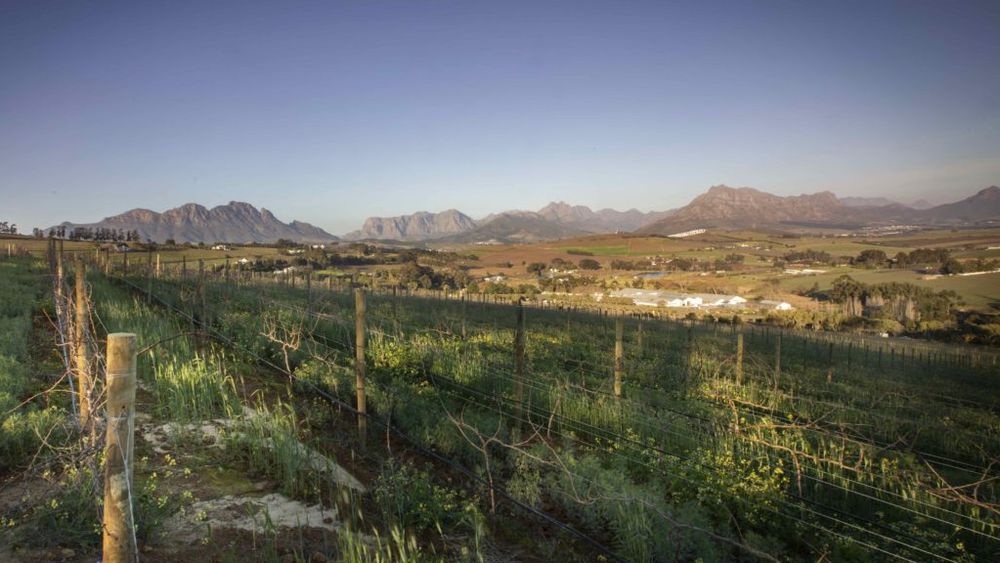
Fontannaz has ambitious plans for Le Grande Domaine including a restaurant and visitor tasting room
Commercial but premium approach
But what Fontannaz has not lost is all the commercial and market nous he has gained from working in the cut throat branded, mainstream off-trade market. It’s particularly refreshing to hear a now premium wine producer talk about the market in such a clear, focused and commercial way.
Already he is working in Argentina to create a new Grands Crus style system to raise the profile, significance and “credentials” of particular areas of terroir. He hopes, for example, to work with senior producers like Catena to lobby for a ‘Grand Cru of Agrelo’.
He is keen to so something similar in specific regions and terroir of South Africa. “We want to put these regions on the map,” says Fontannaz. “We want to make the link between these terroirs and their origins.”
Using classic marketing and branding strategies but in the premium wine market. “We want to be premium, but to do it in a way that makes good commercial sense,” explains Fontannaz.
He is not just making a rosé, but wants to push South Africa’s credentials as a quality, premium rosé producer – with a look, feel and taste profile that sits alongside Provence rosé. “Why can’t South Africa be the Provence rosé of the New World,” asks Fontannaz.
The Shiraz, Mourvedre, Grenache blend gives it the flavour, colour and texture that Fontannaz believes South Africa can do so well. “We see our rosé as being a project on its own.”
So much so it has sourced and is using bottles, including magnums, imported from Italy to get the right look and feel. “We want to have something that is distinctive,” said Jon Woodriffe, Origin’s sales director, who has taken on responsibility for building up the new Origin Vineyards business.
The Sauvignon Blanc blend, The Pledge, is looking to position South African Sauvignon as closer to Sancerre in style and whilst the growers it picks the grapes from each year might change, the minerality and complexity of the wine will remain the same, said Woodriffe. It has this year produced 80,000 bottles and will look to grow that in the coming years.
“We want it to be premium, but to also make good commercial sense,” added Fontannaz.
Taking more control

Fontannaz has not just acquired Finca La Anita he is looking to make it part of a new Grand Cru system in Argentina
Noticeably one of the key reasons why Fontannaz stepped in to buy Finca La Anita when it came on the market as it meant he could “secure” the grapes it was already buying for its Mendoza Vineyards business.
Similarly the situation in South Africa over the last couple of vintages, with the short harvests on the back of its serious drought conditions, has also put so much more emphasis around having access to fruit and being able to secure and protect your own volumes of grapes, said Fontannaz.
Both Fontannaz and Woodriffe recognise that in some ways producing the ‘Vineyards’ wines is going to be a lot easier than finding a place for them in the premium on-trade.
“It’s not a world we know,” admits Woodriffe. “It’s unchartered territory.”
Which is why it will be looking to work with the right distributor that can get its wines into the right channels. Not just in the UK, but in key markets around the world. Origin’s overall business is split 40% in the UK, 40% in Europe and the rest split around the world, with a growing business in the US and Canada.
Woodriffe and the Origin Vineyards team were, for example, exhibiting at the recent Vinexpo Shanghai event where the wines went down very well with Chinese importers.
“This is about authenticity and the story of the wines. It’s not about a label. It’s about a long, hard commitment with a story attached to it,” he added.
Gallo and Origin Wines are just two of a growing number of producers and brand owners that have been prepared to change the way they work to better guarantee and secure their own futures. It has meant working in different sectors of the market and learning new skills. It’s where the future of wine production and distribution is going and can only become more important as wine businesses look at new ways they can better secure their futures.
